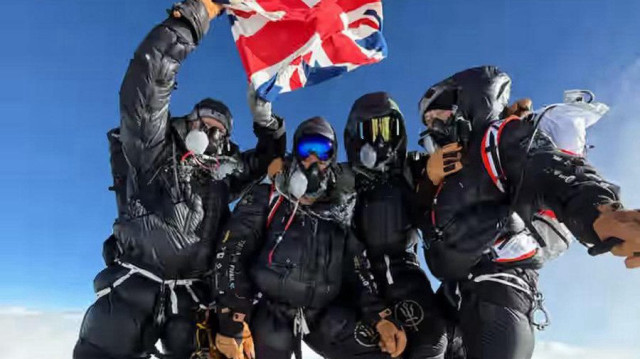
Use of Xenon gas, believed to help prevent altitude sickness, reduce low-oxygen effects, stirs debate in mountaineering community
Nepal said Thursday it is investigating the use of Xenon gas by four British army veteran climbers during their ascent on Mount Everest, the Kathmandu Post reported.
Nepal's Department of Tourism released a statement recognizing media coverage of the accomplishment by former special forces members.
“We are currently engaging with the expedition team leaders, members, and the associated agencies to gather detailed information and conduct a thorough study and analysis of this matter,” it said.
Four British Army veterans, known as the "Xenon Climbers," became the first to summit Mount Everest with the help of xenon gas therapy, on Wednesday.
The climbers included Alastair Carns, a parliament member and minister for veterans at the Defense Ministry, along with Garth Miller, Anthony Stazicker and Kev Godlington.
They inhaled Xenon gas in Germany, allowing them to summit the 8,848-meter (29,000-feet) peak in less than five days without the usual weeks-long acclimatization.
The use of Xenon gas, believed to help prevent altitude sickness and reduce low-oxygen effects, has stirred debate in the mountaineering community.
The International Climbing and Mountaineering Federation (UIAA) has raised concerns about the lack of proof for Xenon's effectiveness at high altitudes and possible health risks like brain and respiratory issues.







